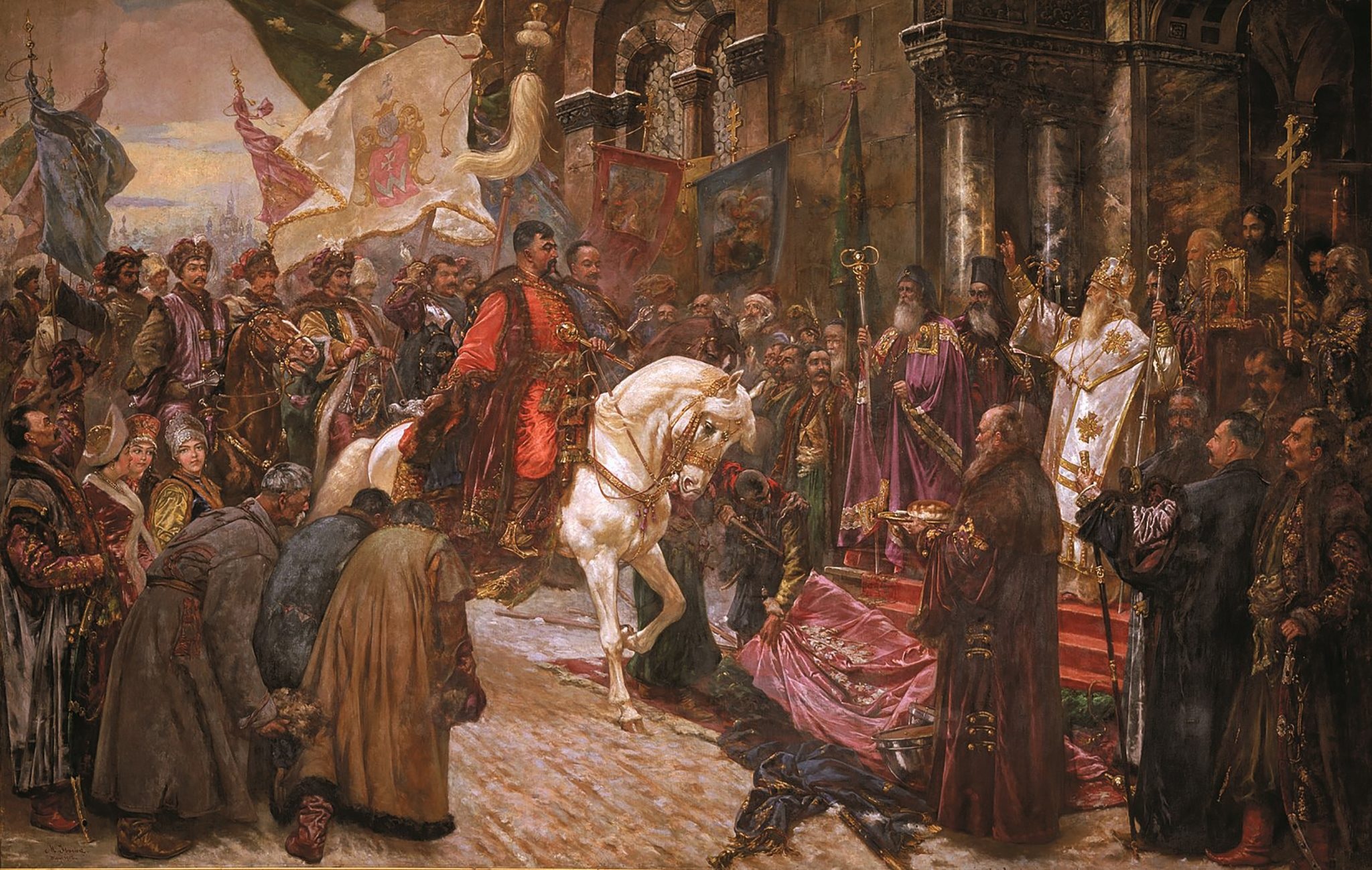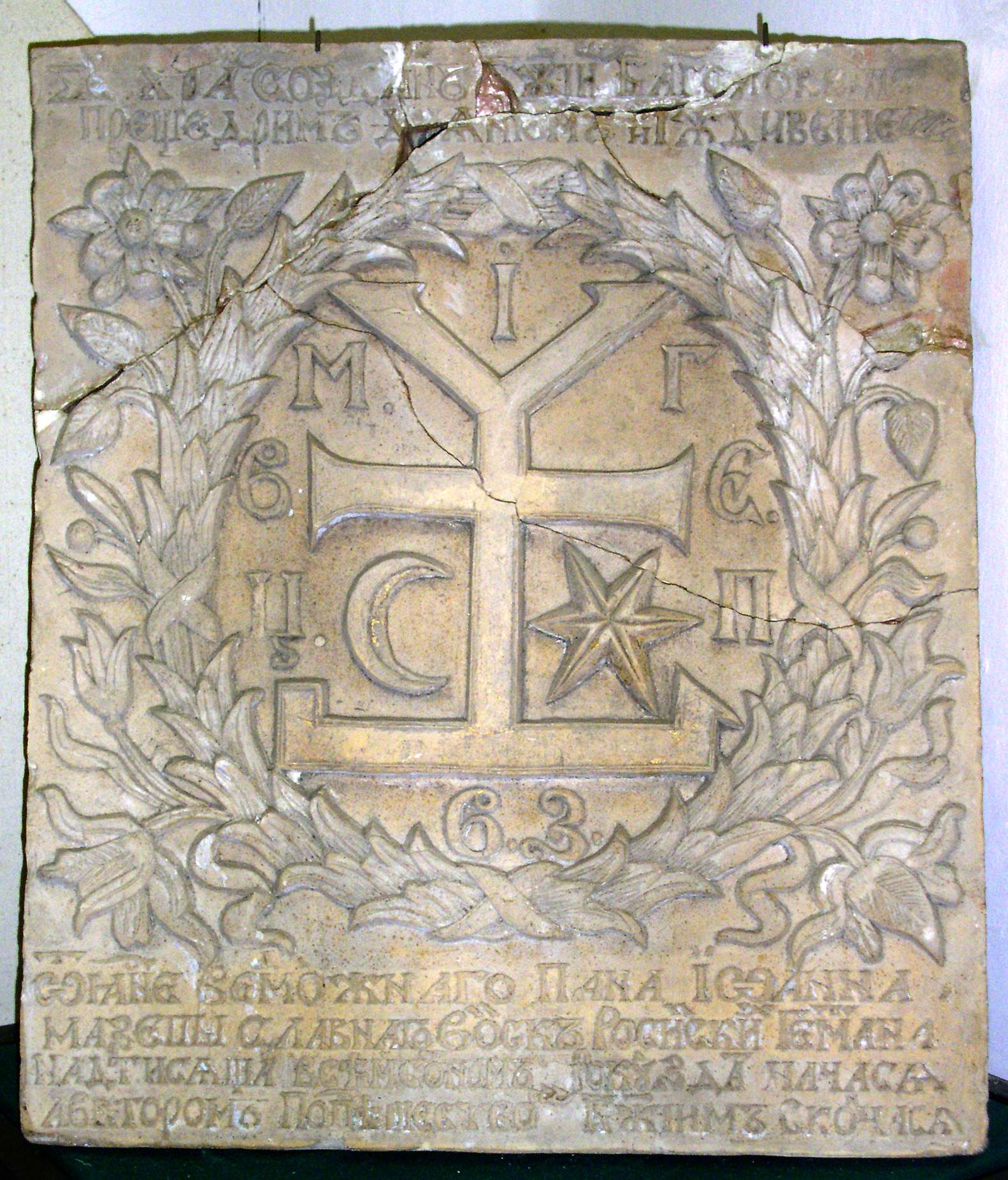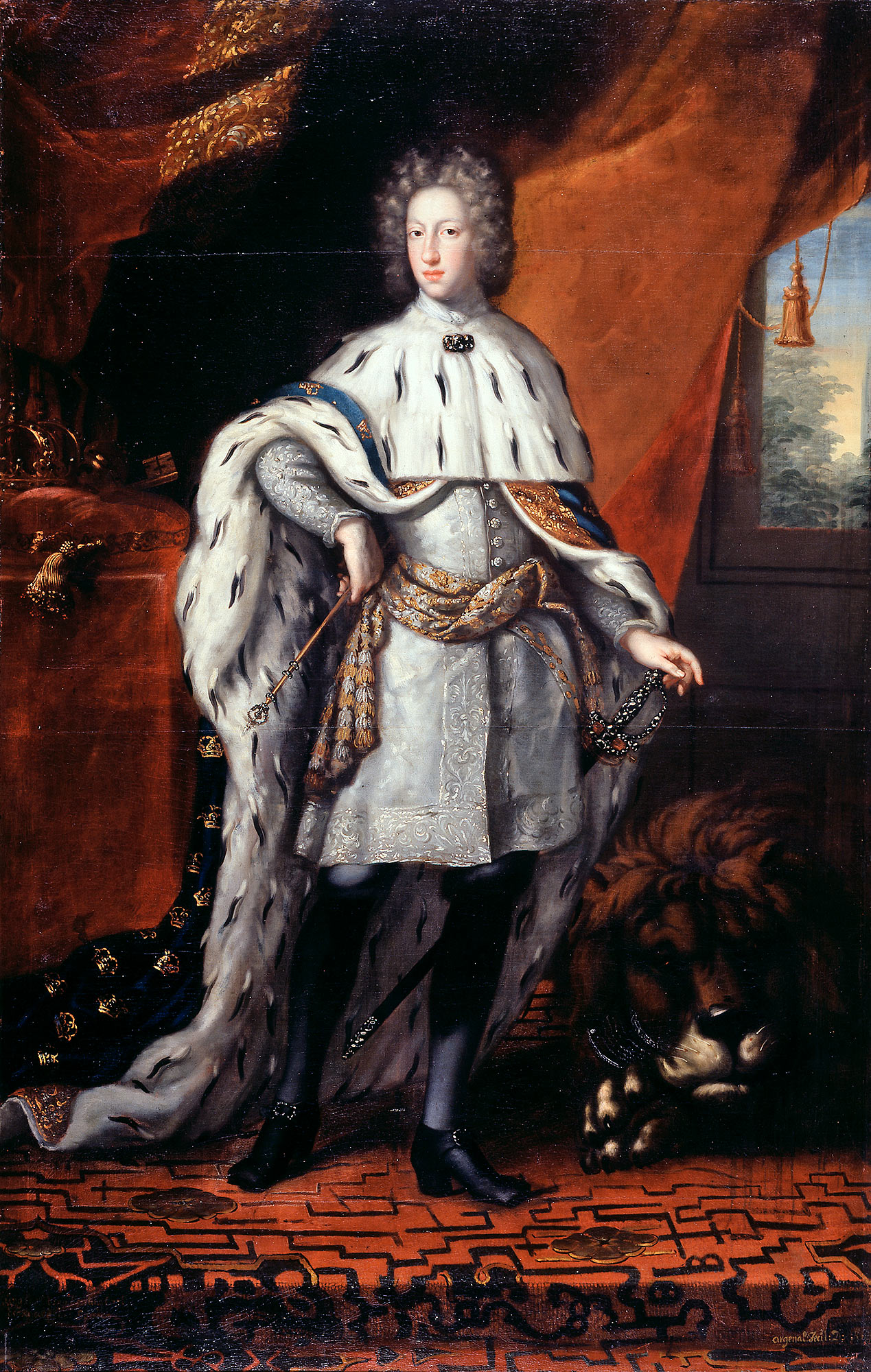|
Ivan Iskra
Ivan Ivanovych Iskra ( uk, Іван Іванович Іскра) (died July, 14, 1708) was a colonel of Poltava (1696–1703). Iskra belonged to the anti- Hetmanate coalition led by Vasily Kochubey. In late 1707, Kochubey and Iskra delivered a letter to the Tsar's court that accused Ivan Mazepa of initiating talks with Stanislaus Leszczynski of Poland and Charles XII of Sweden. Peter I did not believe the letter and beheaded them both. Later, when the Tsar realized that they were correct, they were reburied near the Refectory Church in Kiev Pechersk Monastery Kyiv-Pechersk Lavra or Kyivo-Pechers’ka Lavra ( uk, Києво-Печерська лавра, translit=Kyievo-Pecherska lavra, russian: Киево-Печерская лавра), also known as the Kyiv Monastery of the Caves, is a historic Mon .... [...More Info...] [...Related Items...] OR: [Wikipedia] [Google] [Baidu] |
Poltava
Poltava (, ; uk, –ü–æ–ª—Ç–∞–≤–∞ ) is a city located on the Vorskla River in central Ukraine. It is the capital city of the Poltava Oblast (province) and of the surrounding Poltava Raion (district) of the oblast. Poltava is administratively incorporated as a city of oblast significance and does not belong to the raion. It has a population of History It is still unknown when Poltava was founded, although the town was not attested before 1174. However, for reasons unknown, municipal authorities chose to celebrate the city's 1100th anniversary in 1999. The settlement is indeed an old one, as archeologists unearthed a Paleolithic dwelling as well as Scythian remains within the city limits. Middle Ages The present name of the city is traditionally connected to the settlement Ltava which is mentioned in the Hypatian Chronicle in 1174. [...More Info...] [...Related Items...] OR: [Wikipedia] [Google] [Baidu] |
Cossack Hetmanate
The Cossack Hetmanate ( uk, Гетьманщина, Hetmanshchyna; or ''Cossack state''), officially the Zaporizhian Host or Army of Zaporizhia ( uk, Військо Запорозьке, Viisko Zaporozke, links=no; la, Exercitus Zaporoviensis), was a Ukrainian Cossack state in the region of what is today Central Ukraine between 1648 and 1764 (although its administrative-judicial system persisted until 1782). The Hetmanate was founded by the Hetman of Zaporizhian Host Bohdan Khmelnytsky during the Uprising of 1648–57 in the eastern territories of the Polish–Lithuanian Commonwealth. Establishment of vassal relations with the Tsardom of Russia in the Treaty of Pereyaslav of 1654 is considered a benchmark of the Cossack Hetmanate in Soviet, Ukrainian, and Russian historiography. The second Pereyaslav Council in 1659 further restricted the independence of the Hetmanate, and from the Russian side there were attempts to declare agreements reached with Yurii Khmelnytsky in 1659 ... [...More Info...] [...Related Items...] OR: [Wikipedia] [Google] [Baidu] |
Vasily Kochubey
Vasily Leontiyevich Kochubey (russian: Василий Леонтьевич Кочубей, uk, Василь Леонтiйович Кочубей) (c. 1640 – 15 July 1708) was a Cossack-born Russian state figure of Crimean Tatar descent. He was executed by Hetman Ivan Mazepa. His great-grandson was the eminent Imperial Statesman Viktor Kochubey. The family name is also spelled Kotchoubey (French) and Kotschoubey (German, Almanach de Gotha). Biography :: The grandson of the Crimean Tatar Kuchuk-bey, who left to Ukraine in the middle of XVII century and was baptized Andrey. :: Until 1675 he was a military chancellor of Hetmans I. Briukhovetskyi and P. Doroshenko :: 1675 – P.Doroshenko'sEnvoy to Turkey. :: 1676 – Envoy of Archbishop Lazar Baranovych to Moscow, :: 1676 – 1681 – a military chancellor under I. Samoilovych. :: 1681 – 1687 – he was a regent of the General Military Chancellery (1681 ) und ... [...More Info...] [...Related Items...] OR: [Wikipedia] [Google] [Baidu] |
Ivan Mazepa
Ivan Stepanovych Mazepa (also spelled Mazeppa; uk, Іван Степанович Мазепа, pl, Jan Mazepa Kołodyński; ) was a Ukrainian military, political, and civic leader who served as the Hetman of Zaporizhian Host in 1687–1708. He was awarded a title of Prince of the Holy Roman Empire in 1707 for his efforts for the Holy League. The historical events of Mazepa's life have inspired many literary, artistic and musical works. He was famous as a patron of the arts. Mazepa played an important role in the Battle of Poltava (1709), where after learning that Tsar Peter I intended to relieve him as acting Hetman (military leader) of Zaporozhian Host (a Cossack state) and to replace him with Alexander Menshikov, he defected from his army and sided with King Charles XII of Sweden. The political consequences and interpretation of this defection have resonated in the national histories both of Russia and of Ukraine. The Russian Orthodox Church laid an anathema (excommunica ... [...More Info...] [...Related Items...] OR: [Wikipedia] [Google] [Baidu] |
Stanislaus Leszczynski
Stanislav and variants may refer to: People *Stanislav (given name), a Slavic given name with many spelling variations (Stanislaus, Stanislas, Stanisław, etc.) Places * Stanislav, a coastal village in Kherson, Ukraine * Stanislaus County, California * Stanislaus River, California * Stanislaus National Forest, California * Place Stanislas, a square in Nancy, France, World Heritage Site of UNESCO * Saint-Stanislas, Mauricie, Quebec, a Canadian municipality * Stanizlav, a fictional train depot in the game '' TimeSplitters: Future Perfect'' * Stanislau, German name of Ivano-Frankivsk, Ukraine Schools * St. Stanislaus High School, an institution in Bandra, Mumbai, India * St. Stanislaus High School (Detroit) * Collège Stanislas de Paris, an institution in Paris, France * California State University, Stanislaus, a public university in Turlock, CA * St Stanislaus College (Bathurst), a secondary school in Bathurst, Australia * St. Stanislaus College (Guyana), a secondary school in ... [...More Info...] [...Related Items...] OR: [Wikipedia] [Google] [Baidu] |
Charles XII Of Sweden
Charles XII, sometimes Carl XII ( sv, Karl XII) or Carolus Rex (17 June 1682 – 30 November 1718 O.S.), was King of Sweden (including current Finland) from 1697 to 1718. He belonged to the House of Palatinate-Zweibrücken, a branch line of the House of Wittelsbach. Charles was the only surviving son of Charles XI and Ulrika Eleonora the Elder. He assumed power, after a seven-month caretaker government, at the age of fifteen. In 1700, a triple alliance of Denmark–Norway, Saxony– Poland–Lithuania and Russia launched a threefold attack on the Swedish protectorate of Holstein-Gottorp and provinces of Livonia and Ingria, aiming to draw advantage as the Swedish Empire was unaligned and ruled by a young and inexperienced king, thus initiating the Great Northern War. Leading the Swedish army against the alliance, Charles won multiple victories despite being usually significantly outnumbered. A major victory over a Russian army some three times the size in 1700, at the Ba ... [...More Info...] [...Related Items...] OR: [Wikipedia] [Google] [Baidu] |
Peter I Of Russia
Peter I ( ‚Äì ), most commonly known as Peter the Great,) or Pyotr Aleks√©yevich ( rus, –ü—ë—Ç—Ä –ê–ª–µ–∫—Å–µÃÅ–µ–≤–∏—á, p=Ààp ≤…µtr …êl ≤…™Ààks ≤ej…™v ≤…™t…ï, , group=pron was a Russian monarch who ruled the Tsardom of Russia from to 1721 and subsequently the Russian Empire until his death in 1725, jointly ruling with his elder half-brother, Ivan V until 1696. He is primarily credited with the modernisation of the country, transforming it into a European power. Through a number of successful wars, he captured ports at Azov and the Baltic Sea, laying the groundwork for the Imperial Russian Navy, ending uncontested Swedish supremacy in the Baltic and beginning the Tsardom's expansion into a much larger empire that became a major European power. He led a cultural revolution that replaced some of the traditionalist and medieval social and political systems with ones that were modern, scientific, Westernised and based on the Enlightenment. Peter's reforms had a lastin ... [...More Info...] [...Related Items...] OR: [Wikipedia] [Google] [Baidu] |
Kiev Pechersk Monastery
Kyiv-Pechersk Lavra or Kyivo-Pechers’ka Lavra ( uk, Києво-Печерська лавра, translit=Kyievo-Pecherska lavra, russian: Киево-Печерская лавра), also known as the Kyiv Monastery of the Caves, is a historic Monastery#Eastern Orthodox, Eastern Orthodox Christian monastery which gave its name to Pechers’ky Raion, one of the city districts where it is located in Kyiv. Since its foundation as the cave monastery in 1051, the Lavra has been a preeminent center of Eastern Orthodox Christianity in Eastern Europe. Together with the Saint Sophia Cathedral in Kyiv, Saint Sophia Cathedral, it is inscribed as a UNESCO World Heritage Site. [...More Info...] [...Related Items...] OR: [Wikipedia] [Google] [Baidu] |
Politicians Of The Russian Empire
A politician is a person active in party politics, or a person holding or seeking an elected office in government. Politicians propose, support, reject and create laws that govern the land and by an extension of its people. Broadly speaking, a politician can be anyone who seeks to achieve political power in a government. Identity Politicians are people who are politically active, especially in party politics. Political positions range from local governments to state governments to federal governments to international governments. All ''government leaders'' are considered politicians. Media and rhetoric Politicians are known for their rhetoric, as in speeches or campaign advertisements. They are especially known for using common themes that allow them to develop their political positions in terms familiar to the voters. Politicians of necessity become expert users of the media. Politicians in the 19th century made heavy use of newspapers, magazines, and pamphlets, as well ... [...More Info...] [...Related Items...] OR: [Wikipedia] [Google] [Baidu] |
Colonels Of The Cossack Hetmanate
Colonel (abbreviated as Col., Col or COL) is a senior military officer rank used in many countries. It is also used in some police forces and paramilitary organizations. In the 17th, 18th and 19th centuries, a colonel was typically in charge of a regiment in an army. Modern usage varies greatly, and in some cases, the term is used as an honorific title that may have no direct relationship to military service. The rank of colonel is typically above the rank of lieutenant colonel. The rank above colonel is typically called brigadier, brigade general or brigadier general. In some smaller military forces, such as those of Monaco or the Vatican, colonel is the highest rank. Equivalent naval ranks may be called captain or ship-of-the-line captain. In the Commonwealth's air force ranking system, the equivalent rank is group captain. History and origins By the end of the late medieval period, a group of "companies" was referred to as a "column" of an army. According to Raymond Olive ... [...More Info...] [...Related Items...] OR: [Wikipedia] [Google] [Baidu] |
Year Of Birth Missing
A year or annus is the orbital period of a planetary body, for example, the Earth, moving in its orbit around the Sun. Due to the Earth's axial tilt, the course of a year sees the passing of the seasons, marked by change in weather, the hours of daylight, and, consequently, vegetation and soil fertility. In temperate and subpolar regions around the planet, four seasons are generally recognized: spring, summer, autumn and winter. In tropical and subtropical regions, several geographical sectors do not present defined seasons; but in the seasonal tropics, the annual wet and dry seasons are recognized and tracked. A calendar year is an approximation of the number of days of the Earth's orbital period, as counted in a given calendar. The Gregorian calendar, or modern calendar, presents its calendar year to be either a common year of 365 days or a leap year of 366 days, as do the Julian calendars. For the Gregorian calendar, the average length of the calendar year (the mea ... [...More Info...] [...Related Items...] OR: [Wikipedia] [Google] [Baidu] |
1708 Deaths
Seventeen or 17 may refer to: *17 (number) 17 (seventeen) is the natural number following 16 (number), 16 and preceding 18 (number), 18. It is a prime number. Seventeen is the sum of the first four prime numbers. In mathematics 17 is the seventh prime number, which makes seventeen the ..., the natural number following 16 and preceding 18 * one of the years 17 BC, AD 17, 1917, 2017 Literature Magazines *Seventeen (American magazine), ''Seventeen'' (American magazine), an American magazine *Seventeen (Japanese magazine), ''Seventeen'' (Japanese magazine), a Japanese magazine Novels *Seventeen (Tarkington novel), ''Seventeen'' (Tarkington novel), a 1916 novel by Booth Tarkington *''Seventeen'' (''Sebuntiin''), a 1961 novel by Kenzaburō Ōe *Seventeen (Serafin novel), ''Seventeen'' (Serafin novel), a 2004 novel by Shan Serafin Stage and screen Film *Seventeen (1916 film), ''Seventeen'' (1916 film), an American silent comedy film *''Number Seventeen'', a 1932 film directed ... [...More Info...] [...Related Items...] OR: [Wikipedia] [Google] [Baidu] |





